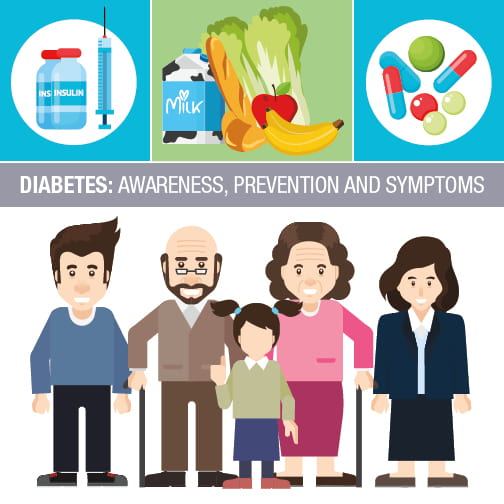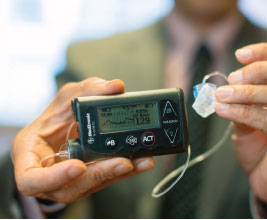
Health topics
Diabetes
Hometown Health Blog

Life with diabetes: What happens as we age?
If you have diabetes, you might encounter the effects of complications as you move into the latter part of your life. According to the Centers for Disease Control and Prevention, 50 percent of adults age 65 and older have prediabetes and 25 percent have diabetes.

I've been diagnosed with prediabetes. What does that mean?
A prediabetes diagnosis means your blood sugar levels aren’t high enough to be classified as type 2 diabetes but indicate a need for a change. Learn when to get your blood sugar levels tested.

Diabetes: What you need to know — and do
If current trends continue, as many as one in three Americans will have diabetes by the year 2050. That projection is staggering, but it doesn't necessarily have to come true.

Diabetes: Prevention and warning signs
The number of Americans with diabetes is staggering. Discover the alarming statistics of this serious health concern, and learn how diabetes can be managed or prevented with lifestyle changes.

Diabetes and your eyes
Everyone needs to take care of their eyes, but when you have diabetes, eye care is especially important. Learn how new AI technology can help detect a common eye issue in people with diabetes.

Can children develop Type 2 diabetes?
Over the past 20 years, Type 2 diabetes has been on the rise, especially in children. Screening is recommended based on certain risk factors. Read about lifestyle changes that can slow or stop diabetes.

How to live well with diabetes
Type 2 diabetes can affect your body’s major organs. Learn about achieving three goals that can help protect them so you can have a healthy, enjoyable life.

Closing the loop with insulin pumps
Monitoring and responding to blood sugar levels can be a heavy burden for people living with diabetes. Learn about the benefits of a hybrid closed loop insulin pump.

Diabetes: 4 steps to put your best foot forward
A complication of diabetes is restricted blood flow to your feet. Follow these steps to develop a daily foot care routine to minimize infection and injury.

Tips for living well with Type 2 diabetes
It can come as a shock to be diagnosed with a long-term illness. It is easy to feel overwhelmed and helpless, but it’s important to know how to manage those feelings and learn how to cope with the daily stress of living with Type 2 diabetes.

Caring for a loved one with diabetes
Oftentimes in a diabetic person's life, he or she may need the help of a loved one. A diabetic person encounters many stages in life. Sure, it can be difficult at times, but the more prepared you are, the better you can handle the situation.

What is Mayo Clinic’s Diabetes Technology Clinic?
Insulin was discovered in 1921. But until about 35 years ago, people with diabetes still relied on multiple daily insulin injections to manage their blood glucose and avoid life-threatening situations. Improvements in technology are now making lives easier for people with the disease.



